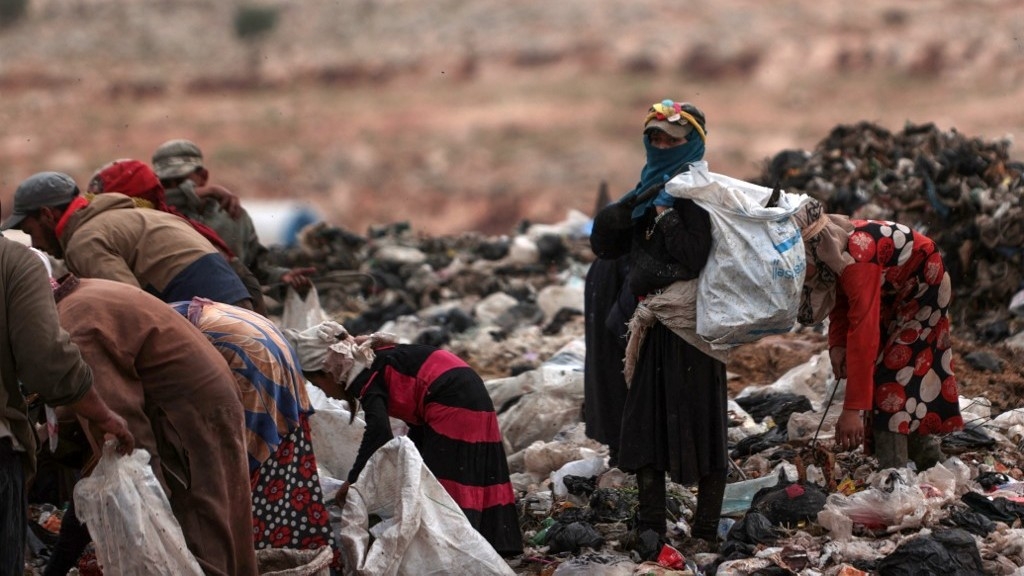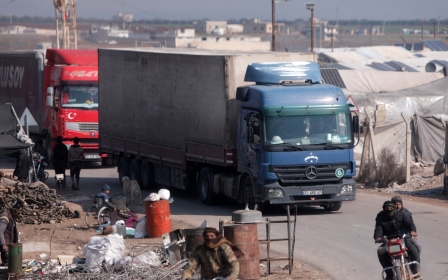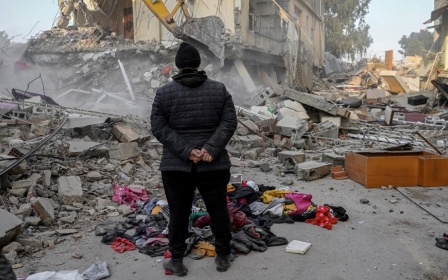Syria: Nearly $6bn aid pledged at EU conference

Nearly $6.13bn was pledged by international donors at a European Union-hosted conference on Thursday to help Syrians recover from poverty. A catastrophic earthquake in February has compounded economic misery for Syrians after over a decade of war.
The pledges include nearly $5bn for 2023 and $1.1bn for 2024 and beyond to support those inside Syria and other neighbouring countries hosting Syrian refugees.
The EU pledged nearly $4.2bn in grants, of which $2.3bn would come from the European Commission and nearly $1.9bn from EU governments.
The UN warns that only a tenth of the financing needed has been secured for 2023.
"As the biggest donor for the Syrian people, the EU needs to - and we want to - make sure that their situation remains high on the international agenda," said Josep Borrell, the EU's high representative for foreign affairs.
Stay informed with MEE's newsletters
Sign up to get the latest alerts, insights and analysis, starting with Turkey Unpacked
"The conference is not only the biggest annual pledging event for Syria, it is also a platform to reiterate the commitment of the international community to an overall and comprehensive political solution to the conflict that is in its 13th year."
Since 2011, more than 14 million Syrians have fled their homes and about 6.8 million are displaced in the country, the United Nations High Commissioner for Refugees, has said.
"We cannot afford to lose yet another generation. Syria should no longer be a place from which people are running away," Dan Stoenescu, EU head of mission to Syria, said.
In February, the death toll of the devastating earthquake in Turkey and Syria topped 47,000 people. While it was easy to get support into Turkey, there were numerous obstacles in getting aid into northern Syria.
The region, largely controlled by rebel groups opposed to the government of President Bashar al-Assad, had already been dependent on aid agencies to a large extent for many years, with its people enduring poverty, homelessness and repeated bombing campaigns by the government and its allies.
The earthquakes exacerbated an already fragile situation, destroying much of the crumbling housing and infrastructure of the region as well as the routes that already existed for aid convoys.
Middle East Eye delivers independent and unrivalled coverage and analysis of the Middle East, North Africa and beyond. To learn more about republishing this content and the associated fees, please fill out this form. More about MEE can be found here.




